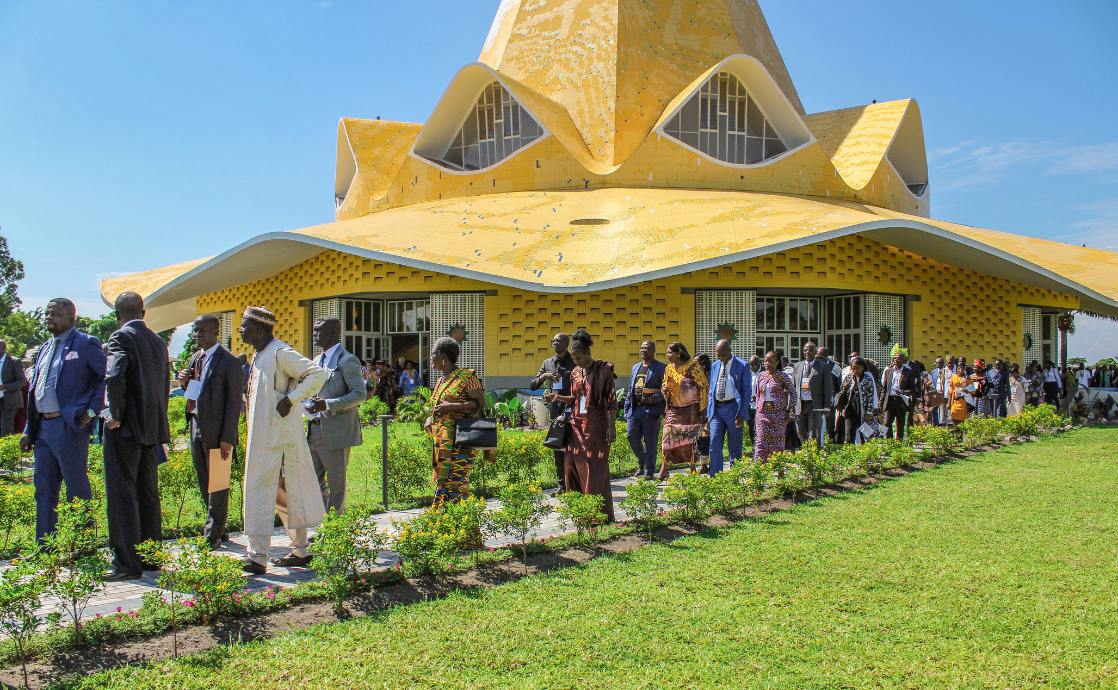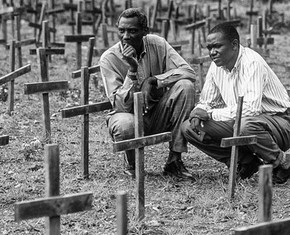The views expressed in our content reflect individual perspectives and do not represent the authoritative views of the Baha'i Faith.
Have you ever insisted you were right, baffled by how others reached the wrong conclusions – then, meditating deeply, discovered that you’re locked into patterns of thought based on wrong assumptions?
That’s one of the many places in life where religion and its spiritual insights can benefit humanity.
The messengers of God help us adjust our thinking, often by using symbolic language, allowing us to form pictures in our heads that give us tools for understanding what they want for us.
RELATED: A Vision of Peace: Stories from the Democratic Republic of the Congo
For example, consider this passage from the writings of Baha’u’llah, the prophet and founder of the Baha’i Faith: “The tabernacle of unity hath been raised; regard ye not one another as strangers. Ye are the fruits of one tree, and the leaves of one branch.” Baha’is believe that our spiritual growth depends on such divine teachings.
Here’s how such inner spiritual work is playing out in the Democratic Republic of the Congo (DRC). The DRC is the world’s 16th largest country, with a population of 90 million comprised of 250 ethnic groups and 240 languages. The DRC has also been among the most war-ravaged countries on Earth; the bloody conflict known as the Great War of Africa or the Second Congo War, waged from 1998-2003, claimed about five and a half million lives. Further, a Pygmy extermination campaign killed 70,000 people.
According to a Baha’i World News Service report in November of 2008, the Baha’i National Spiritual Assembly of the DRC – a democratically-elected body overseeing national activities – responded to events in this distressed country by calling the community to hold educational conferences to help advance their peace-building efforts.
In Uvira, DRC in 2008, despite the danger of a local war as well as money and safety challenges, about 800 people, some walking 300 kilometers, attended the first Baha’i conference held in the DRC. Another conference was held in Bukavu in 2013, where previously warring chiefs now consulted with each other while sharing a meal and the Word of God, and exchanging insights with one another about their mutual issues.
After the Bukavu conference, 26 tribal chiefs signed a joint statement that said, “… the world is evolving … We will no longer guide our people in darkness, now that the light has appeared through these [Baha’i] teachings, which we shall never forget.”
The vice-mayor of Baraka, a city south of Bukavu, said, “I was therefore moved by the gathering and had never before heard such profound discussions that regard the participation of women as essential in community-building efforts.” The chiefs indicated that igniting the light of spiritual guidance had dispelled a moral darkness which had allowed war and hatred to exist.
Through years of studying and sharing thoughts about the Baha’i teachings of peace, equality, and justice, individuals and groups in the DRC learned to resolve tribal conflicts and start to work together. For instance, a community lacking a school determined to raise money to hire a teacher. They called upon their weaving skills to create bags they could sell in area markets, eventually earning enough to offer a decent teacher’s salary, and now a hundred children attend the community’s elementary school. In another area, coffee farmers started a morning pre-work ritual of meeting up to share a cup of coffee. This gathering eventually included reciting prayers together, which served to deepen their interpersonal ties – as Baha’u’llah wrote, “It behoveth man to adhere tenaciously unto that which will promote fellowship, kindliness and unity.”
Also, following a 2018 youth conference focused on developing unity, a group of young people from two villages near Tuwe Tuwe, in South Kivu province, devised an innovative approach to peacebuilding after studying related themes in the Baha’i writings that distinguish spiritual versus material prosperity, and encourage establishing noble goals, being service-oriented, and collaborating in meaningful action.
The conference inspired these youth to try to resolve the tension and hostility between their villages over ownership of agricultural fields. During consultation, they decided to organize a football match in a field between the villages, involving their peers from both villages. The teams integrated these youth who are members of different tribes, and the event attracted a crowd from both villages. After the match, a youth spoke to the audience, stressing how there was no conflict among them, and how young Baha’is from these opposing tribes had learned to apply spiritual principles to restore peace, like this principle from Baha’u’llah: “Cleave unto that which draweth you together and uniteth you. This, verily, is the most exalted Word …”
RELATED: Baha’i Houses of Worship: Where Sacred Music Sings
By studying and consulting about the Baha’i teachings in a wide range of communities and relating them to their lives, groups of individuals came to grasp each other’s viewpoints – which helped them creatively solve common issues, usually with slim resources. Their increasing camaraderie and mutual trust built a growing foundation for peace and unity. Eventually it became apparent to the Baha’i community that a new House of Worship could help them solidify their interrelationships – especially because Baha’i temples are not meant just for Baha’is, but rather are dedicated to helping all humanity have places of solace where they can come together in unity to pray, meditate, and celebrate with song.
The erection of a new national Baha’i House of Worship in the DRC celebrates these unifying activities, connecting this tangible outcome with the long process of study and negotiations, as exemplified by this verse from Bahaʼuʼllah cited in the DRC’s temple dedication ceremonies: “So powerful is the light of unity that it can illuminate the whole earth.”
















Comments
Sign in or create an account
Continue with Googleor